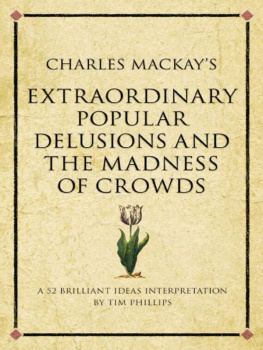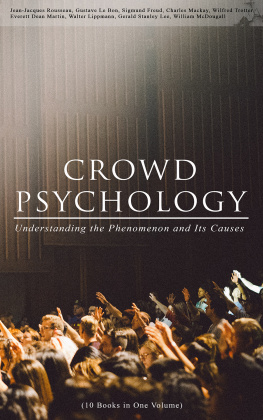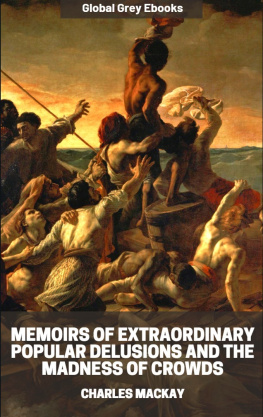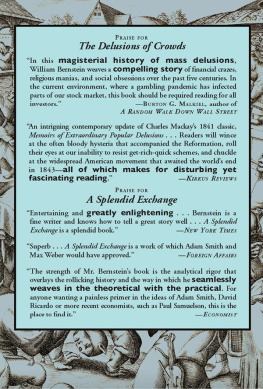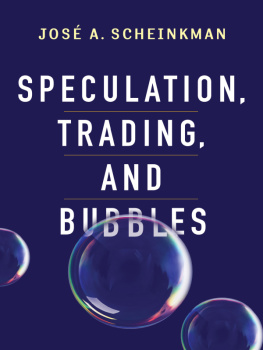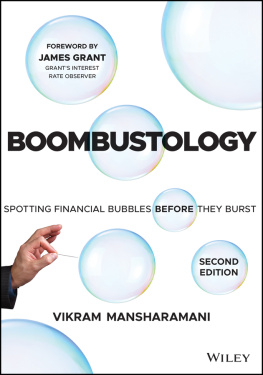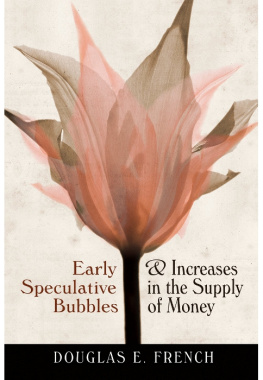
Copyright Infinite Ideas Limited, 2009
The right of Tim Phillips to be identified as the author of this book has been asserted in accordance with the Copyright, Designs and Patents Act 1988.
First published in 2009 by
Infinite Ideas Limited
36 St Giles
Oxford
OX1 3LD
United Kingdom
www.infideas.com
All rights reserved. Except for the quotation of small passages for the purposes of criticism or review, no part of this publication may be reproduced, stored in a retrieval system or transmitted in any form or by any means, electronic, mechanical, photocopying, recording, scanning or otherwise, except under the terms of the Copyright, Designs and Patents Act 1988 or under the terms of a licence issued by the Copyright Licensing Agency Ltd, 90 Tottenham Court Road, London W1T 4LP, UK, without the permission in writing of the publisher. Requests to the publisher should be addressed to the Permissions Department, Infinite Ideas Limited, 36 St Giles, Oxford, OX1 3LD, UK, or faxed to +44 (0)1865 514777.
A CIP catalogue record for this book is available from the British Library
ISBN 978-1-905940-91-2
Brand and product names are trademarks or registered trademarks of their respective owners.
Designed and typeset by Cylinder
Cover image reproduction: Special Collections Library Wageningen UR, speccoll.library@wur.nl
Printed in India
BRILLIANT IDEAS

Extraordinary Popular Delusions and the Madness of Crowds isnt a short book. As its title suggests, Charles Mackay didnt favour three words where he thought eight would do the job.
Its definitely a Victorian book, but its a modern one too. As we will see, the popular delusions that he ridicules persist to this day we just give them different names. Each time they recur through history, we are surprised and mortified that we were swept up in Ponzi schemes, conned by smooth hucksters, victims of mass hysteria, controlled by demagogues and seduced by investments that simply cannot lose.
Were living a global sitcom, one in which no one learns anything from episode to episode, and we make the same mistakes over and over again while convincing ourselves that this time were right, and its different. Mackays catalogue of our own craziness, spanning about a millennium, was the first book to demonstrate what scientists now know: when we act in groups were often not very smart.
The best-known bits of the book are about business, and about what we now call economic bubbles where speculation increases a price out of all reason before it crashes. Mackays history of the Mississippi Scheme, the South Sea Bubble and the Tulipomania are commerce retold as farce.
Other parts of the book deal with charlatans and con men: the fortune tellers and magnetisers, for example, who convince us theyve got a secret talent to heal or reveal the future, and then hand us the bill. As you will see, theyre still with us today, and they are possibly more successful than ever.
The sections on the witch mania and the Crusades show us that when we look for enemies, whether those enemies exist or not, were prepared to condemn or even kill thousands of innocent people on the flimsiest of pretexts.
And the weird patterns of fashion and strange behaviour, popular beliefs and follies that we all share without thinking about it admiring thieves, believing in ghosts undermine our claims to be rational.
Mackay was incredibly well-read and thorough, so almost all of the hard-to-believe stories stand up to scrutiny 150 years later. Indeed, much of the last 150 years has been a demonstration that we can be even madder than Mackay thought. The incredible histories, some of which have almost been lost to us, show how irrational and dangerous groups of people have always been. But this is not a history book. Anyone in Europe or the US who has opened a newspaper recently will agree with Mackay that sober nations have all at once become desperate gamblers. When we laugh at the stupidity of the people in his book, were laughing at ourselves.
Your recovery starts here.
In his introduction to the 1852 edition of Extraordinary Popular Delusions, Mackay points out that whole communities suddenly fix their minds upon one object, and go mad with its pursuit. Sounds familiar? The whole book could have been written yesterday.
DEFINING IDEA
Those who cannot remember the past, are condemned to repeat it.
~ GEORGE SANTAYANA
Men, it has been well said, think in herds; it will be seen that they go mad in herds, while they only recover their senses slowly, and one by one, Mackay says. He goes on, popular delusions began so early, spread so widely, and have lasted so long, that instead of two or three volumes, fifty would scarcely suffice to detail their history.
Inside those two statements are the essence of why he wrote his book and why I am writing this. To Mackay first: his working theory was that mass delusions carry everyone along with them, causing all kinds of trouble: the ruin of people who have spent their lives carefully saving, to then throw it all in on a speculation; the vilification of an innocent scapegoat; the waste of time and money on some grand project that is unreachable or unworkable. We think the wrong thing not because we simply reached the wrong conclusion (which he, and most people, would consider pardonable) but often because the others around us are thinking it too.
But the retreat from madness is a far slower and more painful process, initiated by one or two who have the bravery and the strength of intellect not to run with the crowd for the sake of it. They often achieve the most profit, or take the smallest loss, for their lonely integrity. Gradually others follow. They see the example of the pioneers, ask what was I thinking? and detach themselves from the crowd.
Much later, the crowd, like a flock of starlings, may reconsider and set off in a new direction too. They might ask, what was I thinking?, but its an empty question. They werent thinking as individuals then and they are not now; all they have done is to follow a new crowd. In a financial panic, they are the ones who get ruined.
If this was purely of historical interest, then so would the book be. But, as we will see, there are thousands of examples of exactly the same behaviour that Mackay deplored back then which are still around today. We know about the South Sea Bubble, but Mackays contemporaries still created the Railway Mania and we fell for the dot-com boom. We regret the persecution of witches, but our grandparents lived through the imprisonment of communists, and today mobs have Asian holidaymakers thrown off commercial flights because they were talking in a foreign language, and so must be terrorists.
We dont need fifty books; we live the same book over and over, with a different cast list. Delusions are as popular as ever.

HERES AN IDEA FOR YOU
At work, create the official position of Devils Advocate for any project. That person has the role of questioning your decisions and assumptions, to make sure your herd doesnt go mad.
How easily the masses have been led astray, laments Mackay, in the introduction to the 1841 edition of his book. We still think we can get something for nothing today.
Next page
